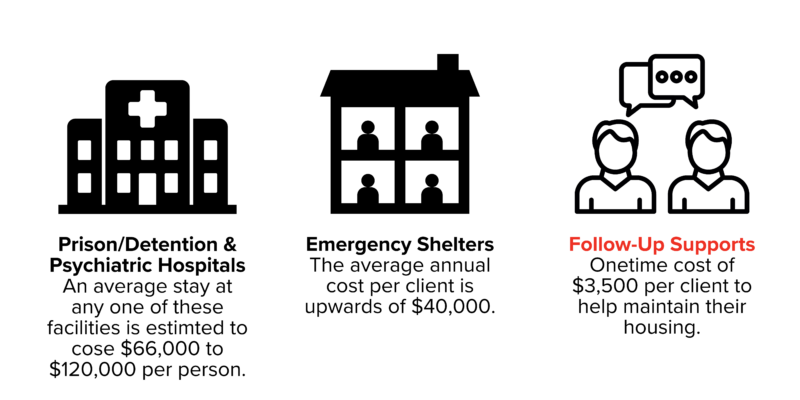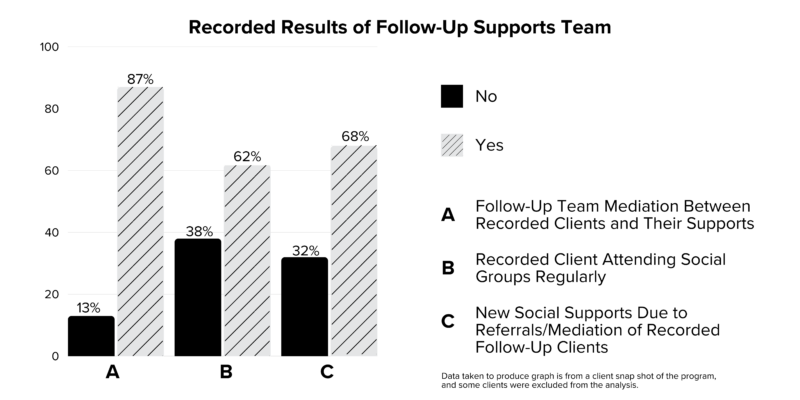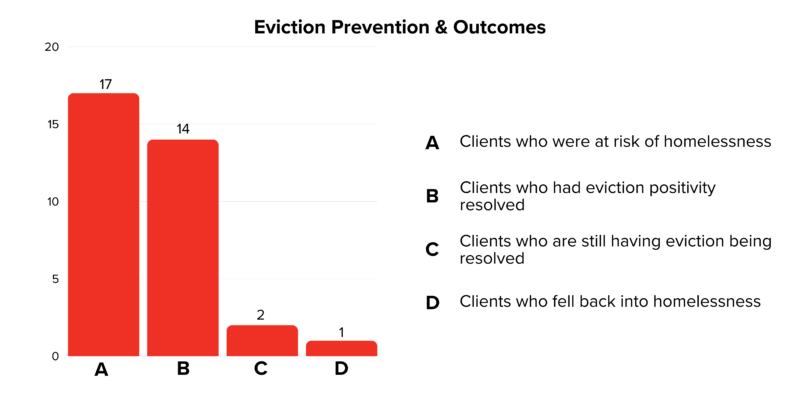follow-up worker program
Eviction Prevention & housing Stabilization
Many clients exiting the shelter system require intensive supports to stabilize into housing and not fall back into the shelter system. To support clients to transition into their new units, stabilize into housing, and integrate into the community, Homes First implements Critical Time Intervention (CTI).
CTI is an Evidence Based Practice (EBP) intervention created in the mid 1980’s in New York by Columbia University and the psychiatric unit at Presbyterian Hospital. The intervention is designed to support clients for a year post-shelter to break the cycle of homelessness.
See below for how we implement CTI into our Follow-Up Worker Program:
CTI is a cost savings program that helps to reduce the costs associated with emergency shelter usage and emergency service consumption such as ambulance, emergency room, hospital stays, psychiatric hospitals, and incarceration.
In 2023, 530 clients were housed, and out of these clients housed 153 (29%) were supported by our own follow-up program.
Consequently, due to limited resources, 71% (377) of clients were not supported by a Homes First follow-up worker.
In 2023, 153 clients were supported by the follow-up worker program to stabilize into their housing, integrate into the community, and break the cycle of homelessness.
Positive outcomes were achieved for 153 clients supported in the follow-up program surrounding social relationships, family reunifications, and support networks.
Eviction prevention outcomes were another important area positively impacted by the follow-up worker program. In 2023, there were 17 clients who were facing evictions.
Through eviction prevention techniques, only one client fell back into homelessness.
